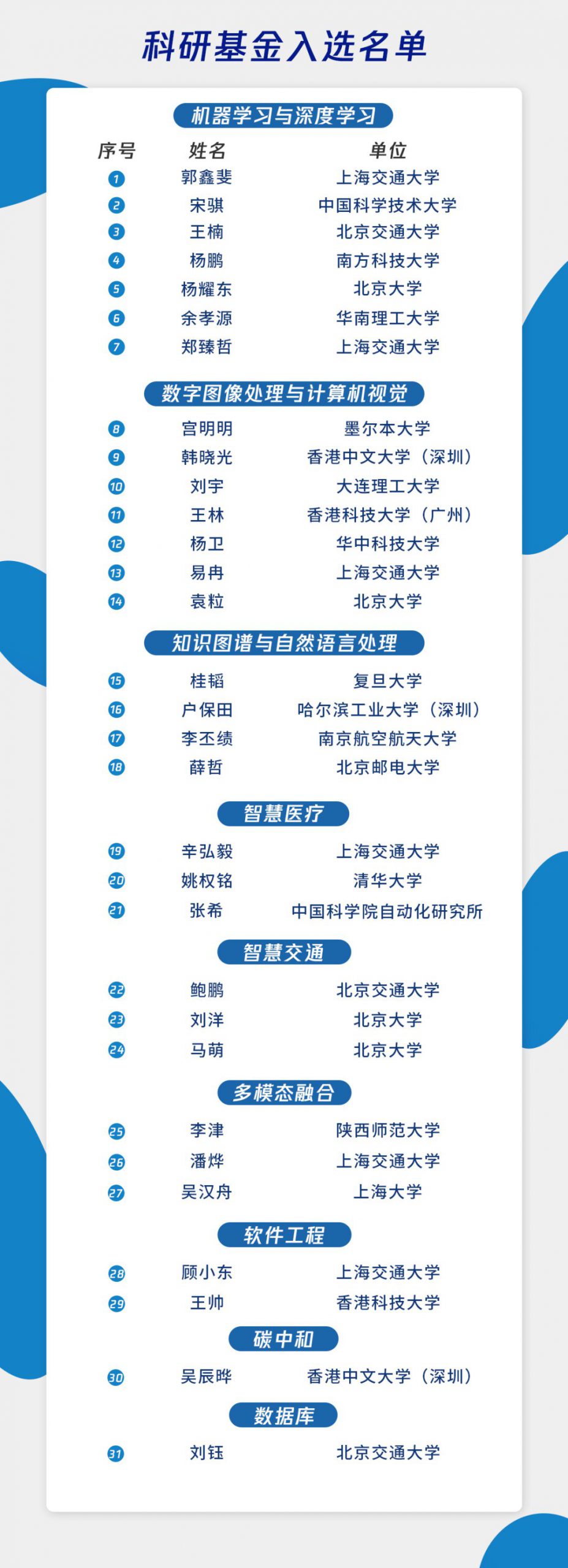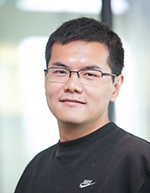The University of Michigan-Shanghai Jiao Tong University Joint Institute (UM-SJTU JI, JI hereafter) Associate Professor Hongyi Xin and Assistant Professor Xinfei Guo have been selected as the awardees of the 2022 CCF (China Computer Federation) – Tencent Rhinoceros Research Fund. With support of the fund, they will work with R&D (research and development) personnel of the world-leading internet and technology company Tencent in the coming year to explore the frontier of technologies, according to a recent official announcement of the fund.

In the joint project with Tencent, Professor Xin’s team will focus on developing a one-stop single-cell-multi-omics-based immunophenotyping analyticial framework that is capable of identifying immune cell types to the sub-type resolution, performing accurate quantitative differential expression analysis, extracting marker genes for each cell type, as well as devising a highly accurate and sensitive cell type annotation method.
Professor Guo will work with Tencent to research on next-generation chip design methodology and tools that are empowered by AI and machine learning techniques. By leveraging the massive computing power offered by Tencent cloud and its high performance computing nodes, the team will develop highly parallelized EDA tools that run from end to end, which is expected to significantly shorten the chip design cycle while delivering higher quality of results (QoR).
CCF – Tencent Rhinoceros Research Fund launched in 2013 is committed to building an enterprise-university cooperation platform for young scholars that serves to promote industrial innovation and social development. In 2022, 31 scholars were selected out of 281 applicants from more than 120 colleges and universities to receive the financial support for the joint research projects.
Personal Profile

Hongyi Xin is a tenure-track associate professor at the UM-SJTU Joint Institute. As a JI alumnus, he received his Bachelor’s degree in Electrical and Computer Engineering from Shanghai Jiao Tong University and Bachelor’s degree in Computer Engineering from University of Michigan in 2011, Ph.D. degree in Computer Science from Carnegie Mellon University in 2018. He conducted postdoctoral research at the University of Pittsburg during 2018-2020 before returning to China to join JI. His current research interests include developing and applying novel statistical and machine learning methods for multi-omic single cell analysis, improving the interpretability, stability of the models as well as incorporating domain knowledge into the mathematical models. As the leader of Novellab, he manages a team to carry out research work covering fields of medical imaging, precision medicine, medical data analytics, etc. Numerous papers were published in leading international journals such as Genome Biology, Nature Machine Intelligence, Nature Communications, Nature Computational Science, Science Advances. His research findings were also accepted by top academic seminars such as MICRO, ASPLOS, Recomb and ISMB.

Xinfei Guo is a tenure-track assistant professor at the UM-SJTU Joint Institute, and a senior member of IEEE. He received his Ph.D. degree in Computer Engineering from the University of Virginia and Master’s degree in Electrical and Computer Engineering from the University of Florida. Before joining JI, he worked at Nvidia and IBM research in the United States, where he served as a key member to contribute to multiple chip products, including the world-leading BlueField Data Processing Units (DPU) and a total of 7 chip tapeouts that cover a wide range of technology nodes from 180nm to 7nm. His previous work has results in over 30 conference or journal papers in IC design, EDA or FPGA fields. He also published a book. He serves as Associate Editor for Integration, the VLSI Journal, and PC member or chair positions for over 30 international conferences, such as DAC, CICC, ICCAD, ASPDAC, FCCM, HOST and so on. His current research interests include low power and high reliability computing, machine learning-assisted EDA techniques and reconfigurable computing.





